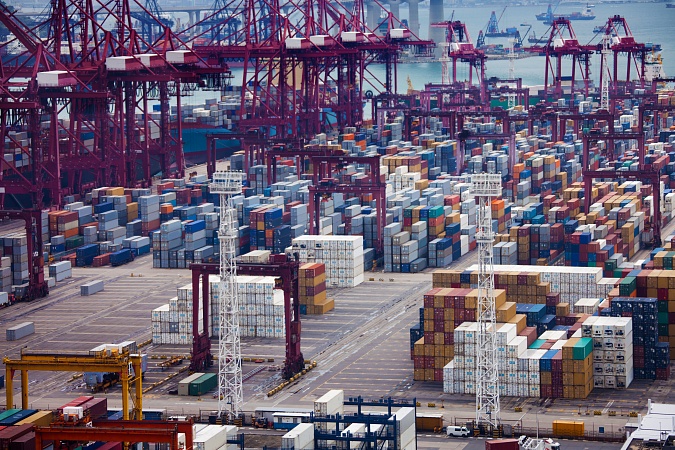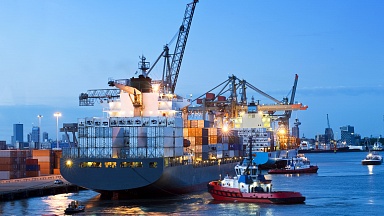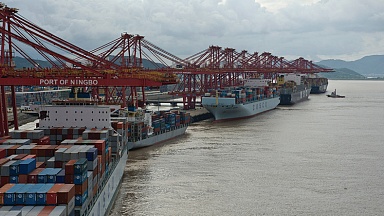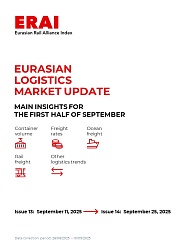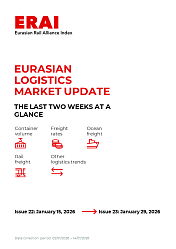Freight representatives have welcomed this week’s reopening of the Suez Canal but have warned that ocean freight supply chains face weeks or months of further disruption.
In an update this week, UK freight forwarder Metro Shipping estimated that it would take around 12 days simply to clear the canal backlog at either end of the Suez Canal, but that the impact to container freight «will last for several weeks, possibly longer». With the Suez roughly midway between the Far East and UK, it said the delays, schedule interruptions and pending congestion «will unwind throughout April».
As well as delays to containers arriving at destinations, it highlighted that there are already shortages of empty containers in many regions and territories, and this situation will be accentuated in the coming weeks until vessels begin to arrive at their destinations, observations also reflected by other freight forwarders.
It was also likely that regional feeder vessels, rail movements and inland haulage «will become extremely busy and in high demand once containers are discharged creating issues with final mile or first mile operations — as experienced before Christmas — due to simultaneous arrival of vessels that can discharge at ports», the forwarder highlighted.
Compressed demand
«In essence there could be, subject to the infrastructure being able to handle the vessels at ports, three weeks of demand, at an already extremely busy time, arriving in a week period. Something will likely fall over and there will be failures in normal service delivery,» Metro highlighted.
Clyde Buntrock, chief executive officer at EV Cargo Global Forwarding, said it had become «abundantly clear» even before the grounded vessel ‘Ever Given’ was recovered that «the impact on containerised shipping on the Far East west bound and Europe-Asia trades is going to be profound, especially layering on top of the already significant issues facing the industry», with his company’s global team mobilised since last week in «setting up contingency and recovery plans for all customers».
In an update today, Metro Shipping said: «Even though the ‘Ever Given’ has been re-floated and the Suez Canal is working to clear the backlog of waiting vessels, a huge amount of uncertainty remains and we should still expect a shortage of containers at many origins, vessel diversions and vessel schedule chaos, as well as congestion and disruption as goods are unloaded at arrival ports, with even scarcer haulage resources to finalise deliveries.»
Aftermath and consequences unwinding
It advised shippers to make contingency plans now, noting: «We are already clearly seeing the aftermath and consequences unwind within the global logistics arena. Shippers should expect disruption to continue for some time and with many already dealing with reduced volumes, it is necessary to think about contingency options, to keep your supply chains running.»
Metro’s business development director Grant Liddell said the company was already «receiving a surge in enquiries for ‘distressed ocean freight’ shipments, which have been delayed from their original schedules. Metro has a variety of solutions for time-sensitive consignments, including air freight, sea/air and rail transport which will become increasingly popular, as fallout from the Suez incident continues to be felt.»
He highlighted that Asia-Europe rail services had been overbooked eastbound and westbound, «which means it’s difficult to find space, and severe delays are common, making it a less attractive option presently as a realistic alternative solution for UK origin or destined freight movements.»
Increased demand on air freight
Liddell noted: «We would expect air to take the brunt of this increased demand, but volume is massively constrained by the lack of passenger (PAX) belly-hold capacity and the priority movement of Covid test kits, electronic commodity launches and pent-up retail demand driven by retail stores exiting lockdowns and when combined this is turning available air cargo space into a ‘bidding war’.»
Working collaboratively with key partner airlines, He said Metro had been «able to protect air volumes on all major trade lanes, to keep our customers’ most urgent supply chains operating and routing cargo via our Birmingham Airport hub, Heathrow and other gateway airports means we can ensure efficient and rapid ground handling on departure/arrival».
Sea-air alternative
He said the company’s sea-air services from Asia via Singapore, Dubai and Colombo had been «reliable and resilient through the pandemic, providing a rapid and cost-effective alternative to pure air freight», proving to be «particularly effective during the height of the Covid pandemic when we expedited hundreds of millions of PPE units through our dedicated Singapore hub, in conjunction with our expert partners at a local level».
That was expected to remain an alternative option for shippers during the current disruption. «It is relatively low cost, in comparison to any direct air freight alternative, a primary driver for the popularity of sea/air services, but so too are the myriad of route and transit options available to suit most deadlines,» Liddell noted.
He added: «Sea freight will struggle with the impact of the Suez blockage for months to come, so a ‘wait and see’ strategy is unlikely to work. We recommend that you review your priority shipments and products and we can assist in making the right decision to ensure business continuity and your own customers’ demands are achieved.
«When ships get delayed by an incident, they go off schedule and arrive too close together, creating chaos. Which will occur in the wake of this Suez blockage, first at European ports, then at US East Coast ports, as well as throughout Asia.»
He said there will be a short lull before ships start arriving, allowing ports to clear any current backlogs. «But even if the ports succeed, ULCVs typically have a container exchange of up to 10,000 TEU, which stretches terminal productivity to the limit at the best of times,» Liddell noted.
Vessel service disruptions
«We are likely to see a lot of port omissions by vessels and congestion at major ports. We are now being advised by shipping lines of some significant service cancellations that will create weeks where vessels are not operating as they look to realign their schedules — the impact is already being felt within the industry as we enter April,» he added. «As congestion spreads carriers will unload vessels at a single early port in order to get ships back to Asia quicker, which means that cargoes destined for multiple European ports will have to move to the correct destination by feeder or other means.»
Another extension of the pain is likely to be the actions that the lines will take to recover their schedules, which is likely to include blanking sailings, omitting port calls or deploying ‘extra loaders’, he noted — «although this latter is less likely given the state of the charter market».
He concluded: «With ships out of position and far behind schedule, port congestion spreading and continuing container imbalances, all the ingredients are there for further rises in rates and carriers may feel entitled to extend surcharges for another few months or even increase them to the general market who are not under contracted commitments.»
Meanwhile, Alex Veitch, general manager for public policy at freight transport association Logistics UK, commented: "News that the stranded cargo vessel the EverGiven, has finally been refloated and is no longer blocking the Suez Canal is excellent news for global supply chains. However, with more than 300 ships stuck behind the ship waiting to travel through the canal, the impact of the incident will continue to be felt around the world for some weeks.
«Any delay to deliveries from the Far East will mean delays in picking up goods from UK ports for export, as well as slowing down deliveries into the UK’s supply chain. Goods affected by the delays will include seasonal stock for UK retailers, so gaps may start to appear unless the situation is resolved quickly.
«It is now vitally important to clear the „traffic jam“ of ships delayed in the Canal as quickly as possible, to restart the supply chain and minimise any disruption. However, the clearance of so many ships at one time could cause congestion at ports along the supply chain, with a resultant slowdown in port productivity.»
